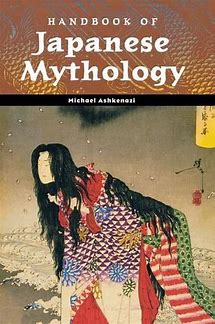The Game Of Empire, CHAPTER SEVENTEEN.
When interstellar travel was just beginning, Matthew Zachary and Yukiko Nomura constructed the single cell that became ancestral to the Zacharians. The cell divided and the second cell was made male. Zachary and Nomura nurtured the cells exogenetically, then adopted the infants who were named Izanami and Izanagi. This couple became the parents of the Zacharians.
Despite my interest in mythology and practice of Zen, I know almost nothing about Japanese mythology. Having googled Izanagi, I find the stories unedifying.
When Kukulkan Zachary has recounted the origin of the Zacharians to Diana Crowfeather:
"There was a long silence. Man and girl left the street for a road that swung out between trees and estates, toward the western promontory. Patricius declined, its light going tawny. The wind blew cooler with a tang of salt." (p. 380)
A long silence seems necessary to digest the story. Three senses: tawny light; cooler wind; salt tang. Four, if we include heard silence. As ever, the wind seems to comment, this time by blowing cooler. The silence is broken:

3 comments:
Kaor, Paul!
I agree, the rigid self isolation of the Zacharians from the rest of the human race would inevitably cause problems and arouse suspicions.
Ad astra! Sean
Japanese mythology is interesting because it's so obviously primitive in an old and sophisticated civilization.
It's rather shamanistic, animistic, just developing into an actual polytheism in its later phases. There are an infinity of spirits in Japanese tradition; even the "Great Gods" like Amaterasu of the Sun are still "kami", like the spirit incarnate in a rock or waterfall or a trickster-fox. Granted, they're "Omikami", "Great Spirits", but it's a continuum.
Then it mutated as it coexisted with Buddhism, one or the other predominating at various times, but neither eliminating the other.
So Japan (probably due to its island isolation) never did go through the religious evolution that most other places did.
This has had interesting cultural consequences.
Kaor, Mr. Stirling!
In the late 1500s to early Tokugawa times it might have been otherwise, because of how widely Catholic Christianity was spreading in Japan. A brutal and bloody persecution by the Tokugawa Shogunate aborted the transformation of Japan. Japanese Christians were driven underground.
Ad astra! Sean
Post a Comment